Description
ABSTRACT
A Review of the Procedural Jurisdiction of the National Industrial Court of Nigeria on Grey Area Claims
Professor Offornze Amucheazi*
The establishment of the National Industrial Court (NIC) as a specialised court in Nigeria was aimed at streamlining the process of industrial disputes resolution by introducing professional standards and replicating international best practices in labour and employment adjudication. NIC’s incorporation into the 1999 Constitution of Nigeria gave it a significant impetus and elevated it to the status of a superior court of record. Despite its constitutional status, the NIC’s exercise of its procedural jurisdiction over matters falling within borderline areas of its jurisdiction or ancillary matters (‘grey areas’) arising from, related to or connected with subject matters within its core jurisdiction has continued to raise significant debates amongst legal observers. In several decisions, the NIC appeared to have restricted itself strictly to the core subject matters of its jurisdiction enumerated in the Constitution and excluded adjudication on ancillary subject matters inextricably linked with the underlying labour and employment matters. This article argues in favour of the NIC entertaining such claims as excluding the claims results in aggrieved claimants being left without a judicial forum for their grievances or multiplicity of claims in the regular High Courts and the NIC over issues arising from the same subject matter and the same set of facts. Entertaining such claims by the NIC fall within its wider constitutional jurisdiction and will ensure that a uniform judicial forum is utilised for the resolution of all disputes related to and arising from labour and employment issues.
Keywords: National Industrial Court, Procedural Jurisdiction, Principal Reliefs, Ancillary Matters.
INTRODUCTION
The establishment of the NIC as a specialised court for the resolution of trade disputes, labour, employment and related matters in Nigeria was aimed at streamlining the process of resolving industrial disputes and introducing professional standards into the resolution process in order to promote peaceful industrial relations. It was a bid to replicate international best practices and create a contemporary dispute resolution mechanism that gave impetus to the establishment of the NIC. The role of the NIC is to adjudicate on all issues emanating from industrial relations and labour and employment disputes.
Although the NIC was established in 1976 by the Trade Disputes Act of 1976, it only began operation as a trade dispute adjudication forum from 1978 with its jurisdiction strictly limited to ‘trade disputes’ as defined in section 47(1) of the Act. From its modest beginnings, the elevation of the status of the NIC was a gradual process, several decades in the making.1 The Trade Disputes (Amendment) Decree No. 47 of 1992 gave the court some impetus by conferring exclusive jurisdiction on it with respect to trade disputes and provided that all such matters pending before the High Courts should abate and be transferred to the NIC.2
*Ph.D., BL, FCIArb. Professor of Law, Nnamdi Azikiwe University, Awka, and Partner, Amucheazi, Ozioko
& Co. Legal Practitioners and Arbitrators, Enugu and Abuja.
- Clara C. Obi-Ochiabutor, ‘Trade Disputes Resolution under Nigerian Labour Law’ (2002-2010) 9 Nig. J. R 71.
- Section 1A, Trade Disputes (Amendment) Decree No. 47 of 1992.

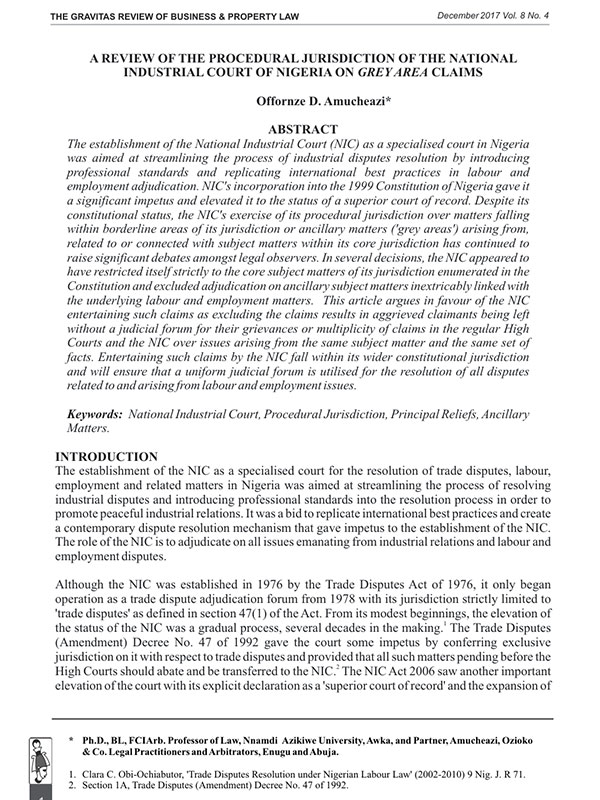
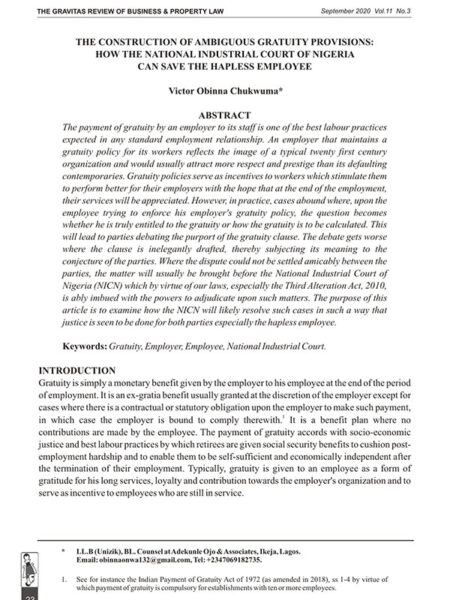
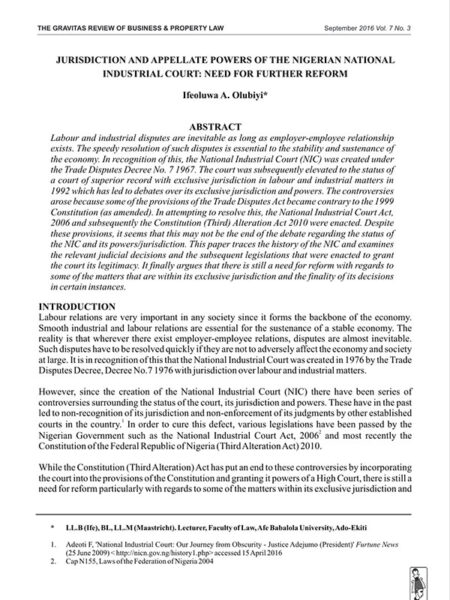
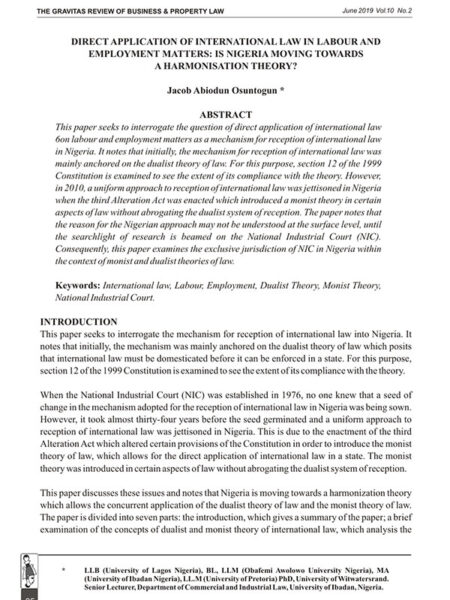
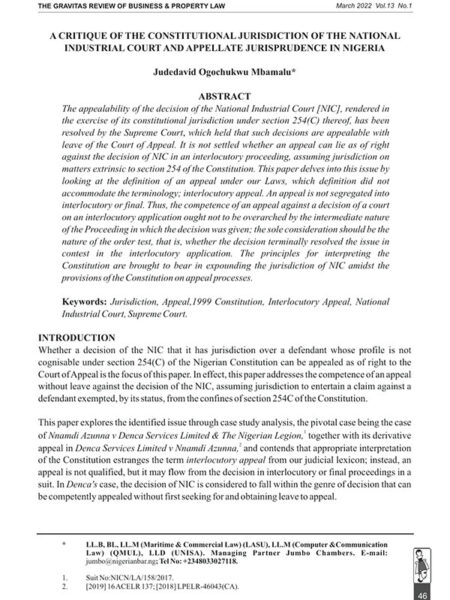


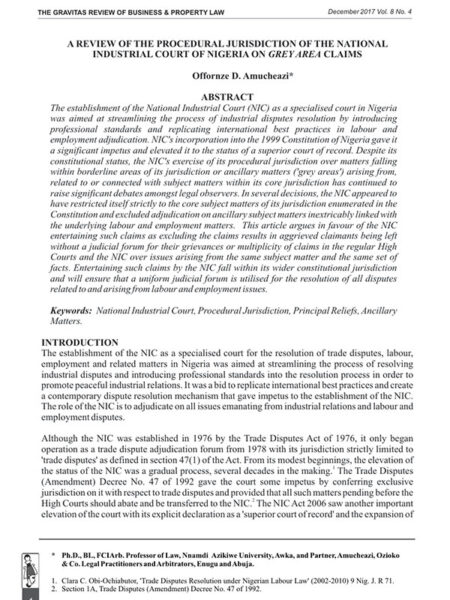
Reviews
There are no reviews yet.